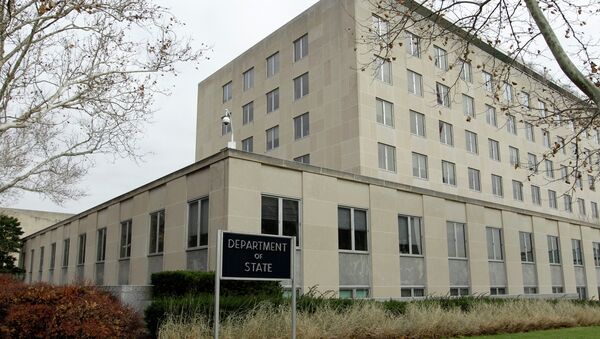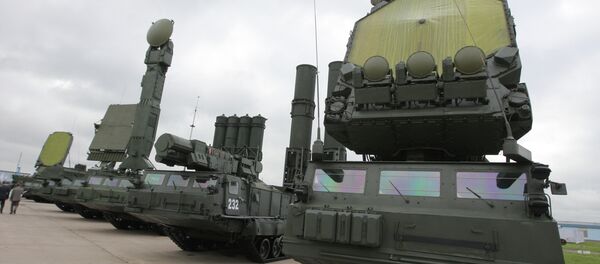WASHINGTON (Sputnik) — The nuclear deal reached with Iran on Tuesday does not eliminate the need for the European ballistic missile defenses to counter Tehran’s ballistic missile threat, US State Department official told Sputnik.
“The successful resolution of the nuclear issue does not obviate the need for ballistic missile defenses to counter the Iranian ballistic missile threat,” the official stated on Tuesday.
The State Department official stressed that the United States remains very concerned about Iran’s ballistic missile program, and will continue to take actions to counter Tehran, including through missile defense, sanctions, export controls and the 34-country Missile Technology Control Regime.
“The President [Obama] has made it clear that successful resolution of the nuclear issue would not remove the need for ballistic missile defenses and that the United States will remain committed to the security of our Allies and Partners against possible ballistic missile threats, including those posed by Iran and its non-state proxies in the region,” the official added.
US State Department official also says Washington will keep its sanctions on Iran’s ballistic missile program despite the nuclear deal reached between Tehran and the P5+1 group of international negotiators on Tuesday.
“President Obama has said that US sanctions on Iran’s ballistic missile program will continue to be fully enforced,” the official stated on Tuesday.
The official noted that the new UN Security Council resolution that will codify the agreement will keep in place the UN sanctions on Iran’s ballistic missile program for 8 years.
“Iran has the largest inventory of ballistic missiles in the Middle East, which continues to be a source of concern to us [United States] and the international community,” the official added.
On Tuesday, Iran and the P5+1 group of countries — China, France, Russia, the United Kingdom, the United States and Germany — announced a final comprehensive agreement on Tehran's nuclear program in exchange for sanctions relief.
On April 6, the US Defense Department announced it would locate 60 percent of its military fleet to the Pacific-Indian Ocean area, including warships fitted with the Aegis ballistic missile defense system.
NATO claims the systems are aimed primarily at countering threats from North Korea and Iran.




